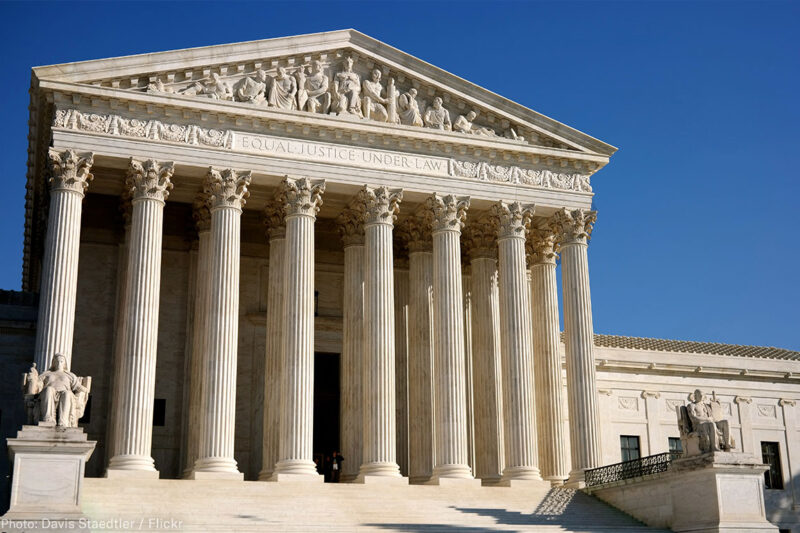
The Constitution protects the fundamental freedoms of speech and association. It protects all speakers equally. Until it doesn’t — as the Supreme Court made clear on the last day of the term, in its highly anticipated decision in Janus v. American Federation of State, County, and Municipal Employees. The case pitted the First Amendment claims of anti-union public-sector employees against the interests of pro-union employees and employers. And instead of reaching a careful balance, the court sided entirely with the rights of some over the rights of others.
For nearly half a century, the court had embraced a compromise that balanced the First Amendment rights of employees who oppose a union, on the one hand, and employees who support that union on the other. In Janus, a 5-4 majority composed of the court’s conservative justices chose to protect only the speech of employees who oppose unions. It protected, in short, only the speech it liked.
At stake in Janus was whether it violates the First Amendment for a state to authorize a public employee union to collect a “fair share fee” from nonmembers for the cost of benefits that the union is legally required to provide all employees, such as representing them in grievance procedures against the employer.
Over 40 years ago, in Abood v. Detroit Board of Education, the court crafted a stable compromise to balance the various interests, including First Amendment rights, at stake in public workplaces. It held that public employees who choose not to join a union can be charged fees to cover the costs of benefits the union has to provide them — but cannot be compelled to join the union or pay for its ideological speech. Such fees, the court reasoned, “distribute fairly the cost” of providing the benefits “among those who benefit” by permitting the union to seek reimbursement for expenses it must pay. Abood’s balance also recognized the interest of governmental employers to choose to deal with a single union to further labor peace.
The court in Janus threw out that compromise and adopted two transparently flawed arguments.
First, it shrugged off the interests of pro-union employees. It rejected Abood’s reasoning that the First Amendment permits everyone to pick up their own costs. Instead, the court held that pro-union employees must pay the costs of anti-union employees. The majority, in short, gave constitutional imprimatur to free riders. That is the opposite of the evenhandedness the First Amendment requires. Now, under Janus, it protects the right to get something for nothing.
Second, the court disregarded the interests of communities, through their representatives, to choose to work with unions to manage public workplaces. In so doing, the court turned its back on a fundamental distinction in First Amendment law: that governments as employers have greater latitude to regulate their employees’ speech than they have when regulating citizens at large. If I were a lawyer for the government, for example, I would not have a First Amendment right to argue anything I wanted to in court — even if the government could not stop me from making the same argument as a private citizen on a street corner.
Governments have greater latitude to manage employees who work for them, including what they say. The court ignored that distinction in Janus, saying that it is different when government employers regulate an individual employee’s speech instead of groups of employees. But that makes no sense. Most rules at work apply to employees generally. It is unthinkable that the court intended to strip public school administrators of their authority, say, to stop a group of teachers from protesting in the cafeteria, simply because the rule against doing so applied across the board. Rather, it appears that the majority created an unprincipled “unions only” carve-out to First Amendment law.
The decision in Janus directly undermines the interests of those who want to associate in a union. Now they have to pay not only for their own services but for services they are legally required to provide to others. It is particularly troubling because public-sector unions often represent the voices of communities and economic interests that are increasingly marginalized. The court authorized free riders to drain these unions of already limited resources. And it dismisses the interests of governments and the people they represent, including nearly half the states plus the District of Columbia and Puerto Rico, that work productively with unions and think fair share agreements make for good labor relations and better governance.
But the decision is also a tragedy for American democracy and the First Amendment and for the legitimacy of the Supreme Court. In our democracy, the First Amendment is supposed to protect all voices equally. Neither it, nor the court, is supposed to take political sides. The First Amendment has, instead, long been heralded as “the guardian of our democracy.” That it must ensure open debate — not pick winners and losers — has long been accepted as “a fundamental principle of our constitutional system.”
The Janus decision reads as the product of a politicized court choosing to protect the speech, and political interests, that it prefers. As Justice Kagan wrote in a powerful dissent: “The First Amendment was meant for better things.”
This article was first published on Take Care.
